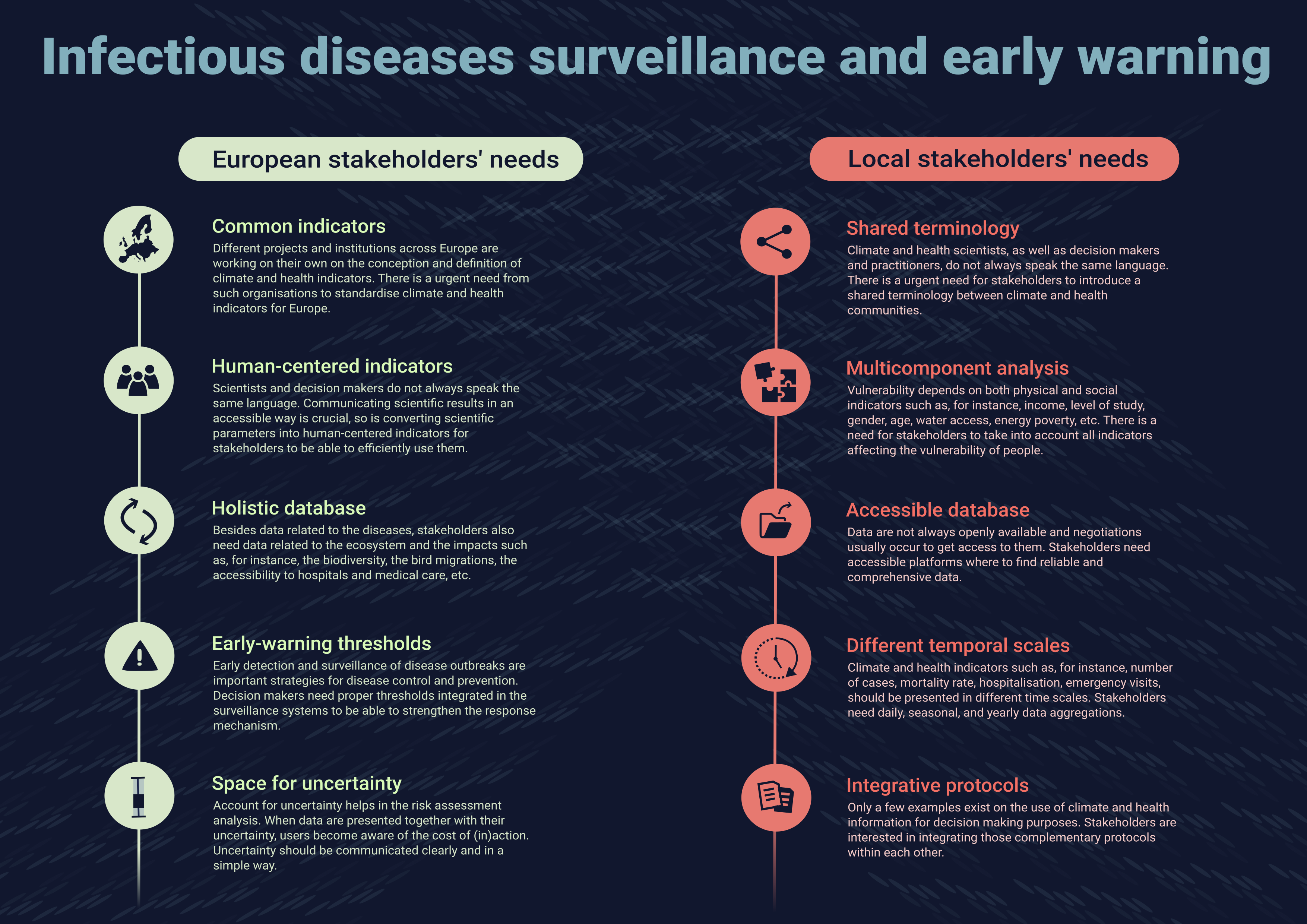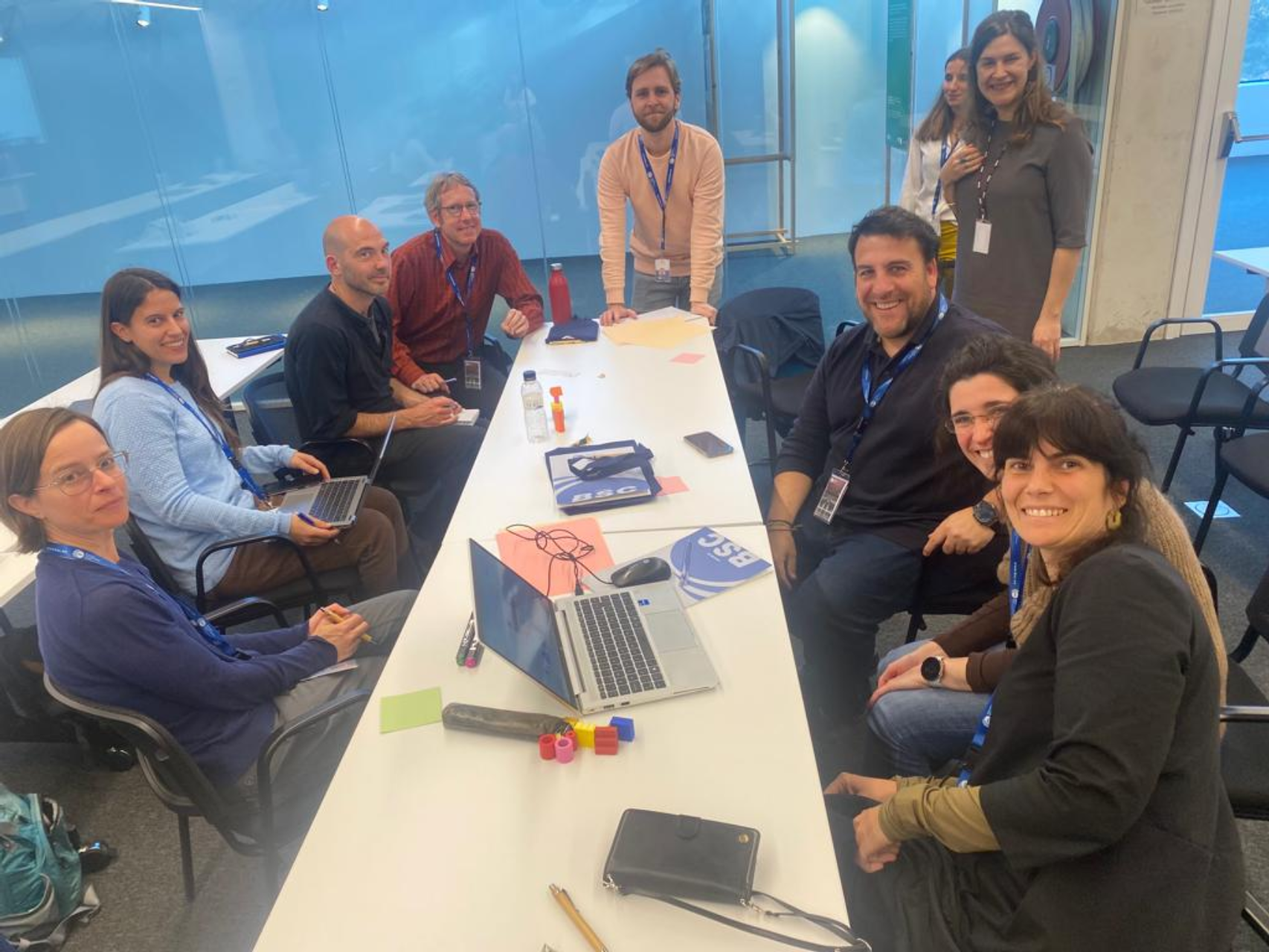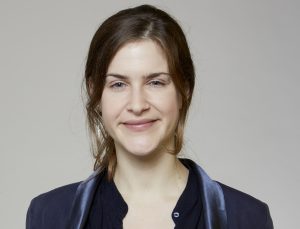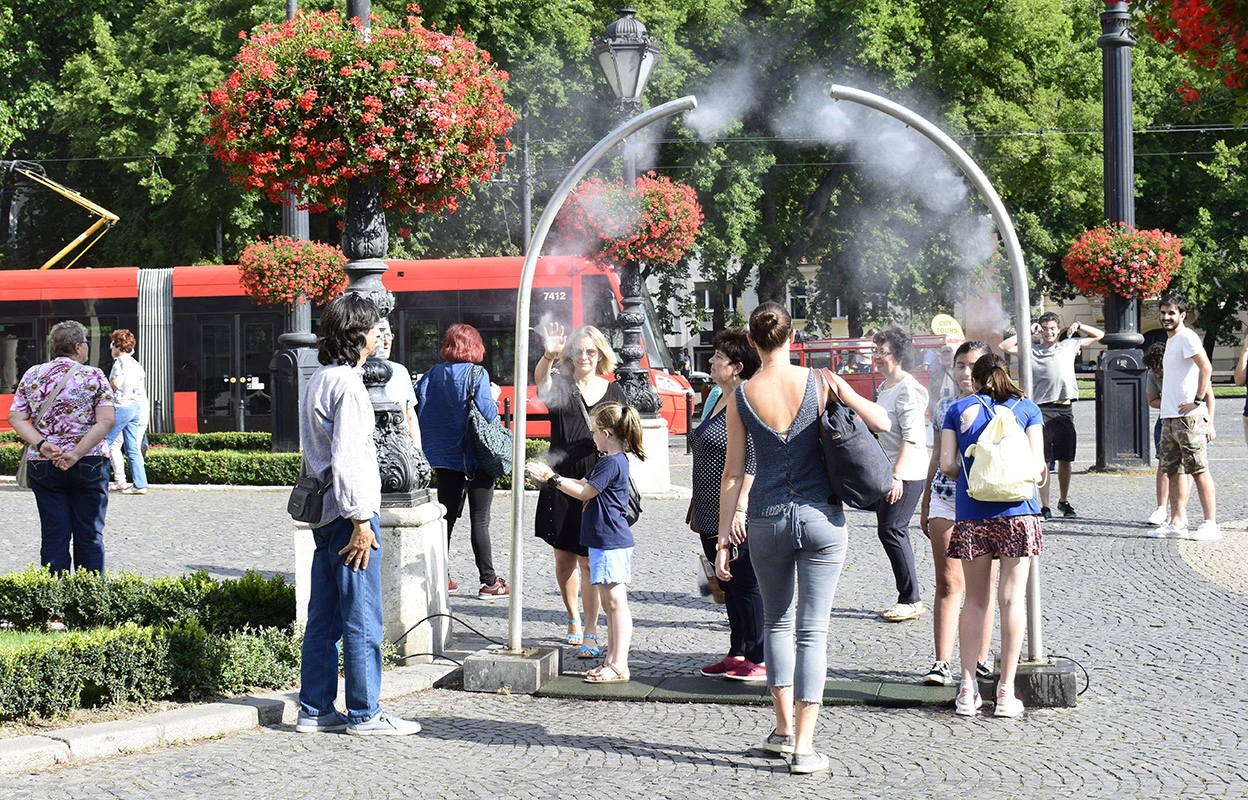“Through the IDAlert framework, we aim to develop indicators to help track how climatic hazards interact with population exposure and vulnerability. Our ultimate goal is to allow decision-makers to acknowledge better how climate change impacts health and develop effective adaptation and mitigation strategies.”
Prof. Rachel Lowe
IDAlert co-coordinator and Director of the Lancet Countdown in Europe
Co-creating climate and health indicators for Europe
Anthropogenic climate change, travel and tourism, trade, antimicrobial resistance, food safety, and societal and environmental transformations alter the emergence and transmission of pathogens that cause infectious diseases in Europe.
To contain the risk of epidemic, disease outbreaks must be continuously monitored and quickly detected before they spread. Yet, policymakers need a comprehensive disease surveillance system and powerful decision-support tools to monitor climate-sensitive diseases and to launch early warnings for proactive preparedness and effective response timely.
IDAlert is the framework where to co-create such policy-relevant indicators and decision-support tools. By combining empirical methods with expert assessment, the project invites key stakeholders to co-create indicators, early warning systems, policy options, and evaluations of adaptation and mitigation strategies at the European and local levels.
Mapping stakeholders’ needs
To better understand European and local stakeholder needs and to identify and co-design policy-relevant climate-health indicators, a co-creation workshop took place between 21-22 March 2023.
The hybrid event gathered European and local stakeholders to explore their decision-making processes when dealing with climate-health information. The workshop opened the door to rich conversations and participatory activities where stakeholders’ wishes and unmet needs were mapped to craft the products and services IDAlert will create during the project’s lifetime.
Stakeholders participating in the European workshop were representatives from, among others, DG-SANTE, ECDC, EEA, IANPHI, RTD, WHO Europe, ECMWF, EFSA, and the Lancet Countdown – most of whom are also involved in the European Climate and Health Observatory (ECHO) and who work on various aspects of climate change and human health. Those participating in the local workshops were predominantly stakeholders involved in the different IDAlert case studies and included representatives from, among others, the Agencia de Salud Pública de Barcelona (ASPB), the International Centre for Diarrhoeal Disease Research, Bangladesh (icddr,b), and the Benaki Phytopathological Institute, Greece.
“The insights gained during the workshop will help us continue to expand our mission to co-create meaningful climate-health indicators and early warning systems for climate-sensitive infectious diseases.”
– Kim Robin van Daalen
Postdoctoral researcher in the Global Health Resilience Team at Barcelona Supercomputing Center
Developing solutions that are truly useful and relevant to the people who will be using them
When collaborative and interactive approaches mingle, users with different perspectives and needs are brought together to develop the most valuable and relevant solutions.
The IDAlert workshop was no different: during the event, researchers, public health officials, and partners of the project had the opportunity to discuss and share how their decision-making processes work, the challenges they usually encounter, and the information they need to make informed decisions in early warning scenarios. During the workshop, they were also asked to sketch their ideal platform and explore how best to use the climate and health indicators in decision-making.
“What I find truly effective in this kind of workshop is that users play the game and collaboratively create solutions tailored to their specific needs. In this way, product designers like me can co-develop with them innovative solutions that are more effective, relevant, and sustainable.”
– Diana Urquiza
UX/Product designer at Barcelona Supercomputing Center






